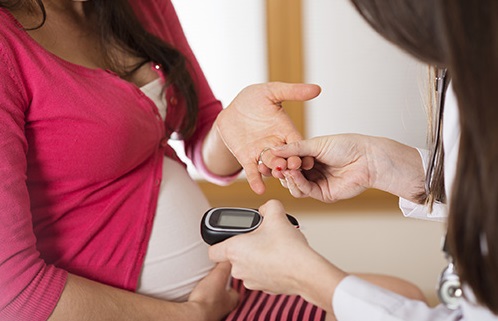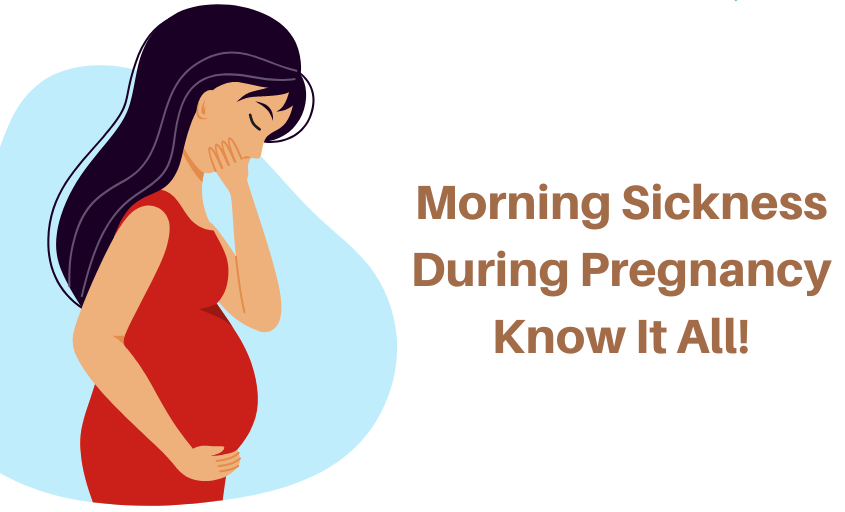Introduction:
Pregnancy can be an exciting time, but it also comes with its own set of challenges. One of these challenges is dealing with fever during pregnancy. When you have a fever, your body temperature rises above its normal range of 98.6°F (37°C). Fever can be caused by infections, illnesses, and even hormonal changes during pregnancy. Although fever is a common occurrence, it can be dangerous for both the mother and the baby if left untreated. In this article, we’ll explore the best fever-in-pregnancy treatment options, including natural remedies and medical interventions.
Fever during pregnancy can be caused by various factors, including:
- Infections: bacterial, viral, or fungal infections can cause a fever in pregnant women.
- Hormonal changes: pregnancy can cause changes in hormone levels, leading to a rise in body temperature.
- Medications: some medications can cause fever as a side effect.
- Heat exhaustion: exposure to high temperatures or dehydration can cause fever.

The Risks of Fever in Pregnancy
Fever can have serious consequences for pregnant women and their babies. Some of the risks of fever during pregnancy include:
- Birth defects: high fever during the first trimester of pregnancy can lead to birth defects.
- Premature labor: fever can cause premature labor, which can lead to complications during delivery.
- Dehydration: fever can cause dehydration, which can be harmful to both the mother and the baby.
- Miscarriage: high fever during the first trimester of pregnancy can increase the risk of miscarriage.
Natural Remedies for Fever in Pregnancy Treatment
If you have a fever during pregnancy, there are several natural remedies you can try before seeking medical help. Here are some of the most effective natural remedies for fever:
- Rest: getting plenty of rest can help your body fight off the infection causing the fever.
- Fluids: drinking plenty of fluids can help prevent dehydration and lower your body temperature.
- Cool compresses: placing a cool, damp washcloth on your forehead can help reduce your body temperature.
- Herbal tea: some herbal teas, such as ginger tea, can help relieve fever symptoms.
Medical Interventions for Fever in Pregnancy Treatment
If your fever persists or if it is accompanied by other symptoms such as abdominal pain, you should seek medical help immediately. Here are some of the medical interventions that may be recommended for fever during pregnancy:
- Acetaminophen: This over-the-counter medication is safe for pregnant women and can help reduce fever and relieve pain.
- Antibiotics: if your fever is caused by a bacterial infection, your doctor may prescribe antibiotics to treat the infection.
- Hospitalization: in severe cases, hospitalization may be necessary to monitor the mother and the baby and provide intravenous fluids.
Home remedies for fever during pregnancy
If you have a fever during pregnancy, it’s important to take care of yourself and your baby. While medical attention may be necessary in some cases, there are also several natural remedies you can try to help relieve fever symptoms. Here are some home remedies for fever during pregnancy:
- Rest: Getting plenty of rest is essential for your body to fight off infections and reduce fever.
- Stay hydrated: Drinking plenty of fluids like water, herbal tea, and electrolyte-enhanced drinks such as coconut water can help prevent dehydration, which can worsen your fever.
- Sponge Bath: A lukewarm sponge bath can help to bring down your body temperature. Be sure to avoid using cold water or alcohol as this can cause shivering, which can raise your body temperature.
- Ginger tea: Ginger tea is a natural antipyretic, which means it can help to reduce fever. You can make ginger tea by boiling ginger root in water and adding honey and lemon juice for taste.
- Essential oils: Certain essential oils like peppermint, eucalyptus, and lavender oils have anti-inflammatory and cooling properties, which can help to reduce fever. You can diffuse them, apply them topically to your temples, or add them to your bathwater.
- Garlic: Garlic has natural antibiotic properties that can help to fight off infections that may be causing your fever. You can add minced garlic to your meals or take garlic supplements, but be sure to consult your doctor first.
- Turmeric: Turmeric contains curcumin, which has anti-inflammatory properties that can help to reduce fever. You can add turmeric powder to your meals or mix it with honey and milk to make a soothing drink.
It’s essential to remember that while these home remedies may help to relieve fever symptoms, they are not a substitute for medical treatment. If your fever persists or is accompanied by other symptoms, you should seek medical attention immediately.
Fever during pregnancy’s second trimester
Here are some things to keep in mind if you have a fever during pregnancy second trimester:
- Take your temperature: Use a reliable thermometer to take your temperature and note the reading. A temperature above 100.4°F (38°C) is generally considered a fever during pregnancy.
- Stay hydrated: It’s essential to drink plenty of fluids like water, herbal tea, and electrolyte-enhanced drinks such as coconut water to avoid dehydration, which can worsen fever symptoms.
- Rest: Rest is essential for your body to fight off infections and reduce fever. Try to take it easy and avoid overexerting yourself.
- Avoid fever-reducing medications: Some over-the-counter fever-reducing medications, like aspirin or ibuprofen, should not be taken during pregnancy. Instead, opt for acetaminophen (Tylenol), which is considered safe during pregnancy. However, be sure to consult your doctor before taking any medication.
- Seek medical attention: If your fever is accompanied by other symptoms like coughing, shortness of breath, or chest pain, or if it persists for more than 24 hours, seek medical attention immediately. A fever during pregnancy can indicate an underlying infection that may require medical treatment.
It’s important to remember that fever during pregnancy can affect your baby’s development, especially during the second trimester. Be sure to take all necessary precautions and seek medical attention if necessary.
Read More: 8 Amazing Home Remedies for Leg Cramps during Pregnancy
Causes and consequences of fever during pregnancy
Fever during pregnancy third trimester
Here are some things to keep in mind if you have a fever during pregnancy third trimester:
- Monitor your temperature: Use a reliable thermometer to take your temperature regularly and note the reading. A temperature above 100.4°F (38°C) is generally considered a fever during pregnancy.
- Stay hydrated: It’s essential to drink plenty of fluids like water, herbal tea, and electrolyte-enhanced drinks such as coconut water to avoid dehydration, which can worsen fever symptoms.
- Rest: Getting plenty of rest is crucial for your body to fight off infections and reduce fever. Try to take it easy and avoid overexerting yourself.
- Consult with your doctor: Contact your doctor immediately if you experience a fever during the third trimester of pregnancy. They may recommend additional testing or treatment to ensure that you and your baby are healthy.
- Avoid fever-reducing medications: Some over-the-counter fever-reducing medications, like aspirin or ibuprofen, should not be taken during pregnancy. Instead, opt for acetaminophen (Tylenol), which is considered safe during pregnancy. However, be sure to consult your doctor before taking any medication.
- Seek medical attention: If your fever is accompanied by other symptoms like coughing, shortness of breath, or chest pain, or if it persists for more than 24 hours, seek medical attention immediately. A fever during pregnancy can indicate an underlying infection that may require medical treatment.
It’s essential to remember that a fever during pregnancy can affect your baby’s development, especially during the third trimester. Be sure to take all necessary precautions and seek medical attention if necessary to ensure the health of both you and your baby.
Fever in pregnancy guidelines
- Monitor your temperature: Use a reliable thermometer to take your temperature regularly and note the reading. A temperature above 100.4°F (38°C) is generally considered a fever during pregnancy.
- Stay hydrated: It’s essential to drink plenty of fluids like water, herbal tea, and electrolyte-enhanced drinks such as coconut water to avoid dehydration, which can worsen fever symptoms.
- Rest: Getting plenty of rest is crucial for your body to fight off infections and reduce fever. Try to take it easy and avoid overexerting yourself.
- Consult with your doctor: Contact your doctor immediately if you experience a fever during pregnancy. They may recommend additional testing or treatment to ensure that you and your baby are healthy.
- Avoid fever-reducing medications: Some over-the-counter fever-reducing medications, like aspirin or ibuprofen, should not be taken during pregnancy. Instead, opt for acetaminophen (Tylenol), which is considered safe during pregnancy. However, be sure to consult your doctor before taking any medication.
- Seek medical attention: If your fever is accompanied by other symptoms like coughing, shortness of breath, or chest pain, or if it persists for more than 24 hours, seek medical attention immediately. A fever during pregnancy can indicate an underlying infection that may require medical treatment.
It’s important to remember that fever during pregnancy can affect your baby’s development, especially during the second and third trimesters. By following these guidelines, you can help manage your fever and ensure the health of both you and your baby. Always consult with your doctor if you have any concerns about fever or any other symptoms during pregnancy.
Fever during pregnancy first-trimester treatment
- Monitor your temperature: Use a reliable thermometer to take your temperature regularly and note the reading. A temperature above 100.4°F (38°C) is generally considered a fever during pregnancy.
- Stay hydrated: Drinking plenty of fluids like water, herbal tea, and electrolyte-enhanced drinks such as coconut water can help avoid dehydration, which can worsen fever symptoms.
- Rest: Getting plenty of rest is crucial for your body to fight off infections and reduce fever. Try to take it easy and avoid overexerting yourself.
- Consult with your doctor: Contact your doctor immediately if you experience a fever during the first trimester of pregnancy. They may recommend additional testing or treatment to ensure that you and your baby are healthy.
- Avoid fever-reducing medications: Some over-the-counter fever-reducing medications, like aspirin or ibuprofen, should not be taken during pregnancy. Instead, opt for acetaminophen (Tylenol), which is considered safe during pregnancy. However, be sure to consult your doctor before taking any medication.
- Avoid hot baths and saunas: Taking hot baths or using saunas can raise your body temperature, which can be dangerous for your baby’s development during the first trimester.
- Wear loose and comfortable clothing: Wearing loose and comfortable clothing can help you stay cool and comfortable while experiencing fever symptoms.
It’s crucial to remember that a fever during the first trimester of pregnancy can affect your baby’s development, so it’s essential to take all necessary precautions and seek medical attention if necessary. Be sure to consult with your doctor before taking any medication or attempting any treatment options.
Cold and fever during pregnancy’s second trimester
- Rest: Getting plenty of rest is crucial for your body to fight off infections and reduce fever. Try to take it easy and avoid overexerting yourself.
- Stay hydrated: Drinking plenty of fluids like water, herbal tea, and electrolyte-enhanced drinks such as coconut water can help avoid dehydration, which can worsen fever symptoms.
- Use a humidifier: Using a humidifier in your bedroom can help keep the air moist and relieve congestion and other cold symptoms.
- Try natural remedies: Natural remedies like honey and lemon tea or saline nasal sprays can help relieve cold and flu symptoms during pregnancy.
- Consult with your doctor: Contact your doctor immediately if you experience a fever during the second trimester of pregnancy. They may recommend additional testing or treatment to ensure that you and your baby are healthy.
- Avoid fever-reducing medications: Some over-the-counter fever-reducing medications, like aspirin or ibuprofen, should not be taken during pregnancy. Instead, opt for acetaminophen (Tylenol), which is considered safe during pregnancy. However, be sure to consult your doctor before taking any medication.
It’s important to remember that fever during pregnancy can affect your baby’s development, especially during the second trimester. By following these guidelines and seeking medical attention if necessary, you can help manage your cold and fever symptoms and ensure the health of both you and your baby.
Covid fever during pregnancy’s third trimester
- Get tested: If you suspect that you may have COVID-19, it’s important to get tested as soon as possible. Contact your healthcare provider or local health department for information on testing availability.
- Isolate: If you test positive for COVID-19, it’s essential to isolate yourself to avoid spreading the virus. Stay in a separate room from others in your household and use a separate bathroom if possible.
- Monitor your symptoms: Keep track of your symptoms, including your fever, and report any changes to your healthcare provider immediately.
- Rest: Getting plenty of rest is crucial for your body to fight off infections and reduce fever. Try to take it easy and avoid overexerting yourself.
- Stay hydrated: Drinking plenty of fluids like water, herbal tea, and electrolyte-enhanced drinks such as coconut water can help avoid dehydration, which can worsen fever symptoms.
- Consult with your doctor: Contact your doctor immediately if you experience a fever during the third trimester of pregnancy, especially if you suspect that it may be due to COVID-19. They may recommend additional testing or treatment to ensure that you and your baby are healthy.
- Follow safety guidelines: Follow safety guidelines such as wearing a mask, practicing social distancing, and washing your hands frequently to help prevent the spread of COVID-19.
It’s important to remember that COVID-19 can affect both you and your baby, especially during the third trimester. By following these guidelines and seeking medical attention if necessary, you can help manage your fever symptoms and ensure the health of both you and your baby.
What is considered a fever during pregnancy
It’s important to note that fever during pregnancy can increase the risk of complications, especially during the first trimester. If you are experiencing a fever, it’s essential to contact your healthcare provider for guidance on monitoring your symptoms and managing your fever. They may recommend additional testing or treatment to ensure that you and your baby are healthy.
FAQs
Q: Is it safe to take ibuprofen for fever during pregnancy?
A: No, ibuprofen is not recommended during pregnancy as it can harm the baby.
Q: Can fever harm my baby during pregnancy?
A: Yes, high fever during pregnancy can cause birth defects, premature labor, dehydration, and miscarriage.
Q: When should I seek medical help for fever during pregnancy?
A: You should seek medical help if your fever persists or if it is accompanied by other symptoms such as abdominal pain.
In conclusion, experiencing a fever during pregnancy can be concerning, but there are steps you can take to manage your symptoms and ensure the health of both you and your baby. It’s important to contact your healthcare provider if you experience a fever, especially during the first trimester, as it can increase the risk of complications.
Some home remedies for fever during pregnancy include staying hydrated, resting, and using a cold compress. Over-the-counter medications should be avoided unless recommended by a healthcare provider.
If you suspect that your fever may be due to COVID-19, it’s essential to get tested, isolate yourself, and follow safety guidelines to help prevent the spread of the virus.
Overall, monitoring your symptoms and seeking medical attention when necessary can help ensure a healthy pregnancy and delivery. Always consult with your healthcare provider for personalized advice on fever in pregnancy treatment.














